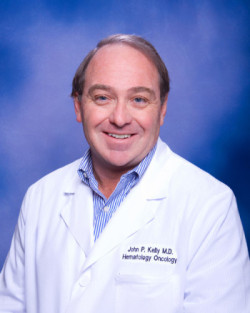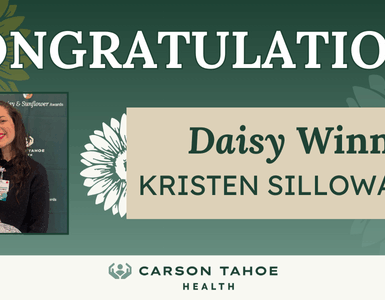November is Lung Cancer Awareness Month, making it a great opportunity to learn the ins and outs of the disease. Some misconceptions about lung cancer exist and it can sometimes be difficult to separate myth from fact. John Kelly, MD, Oncologist with Carson Tahoe Cancer Center, dispelled 7 of the most common myths going around about lung cancer:
Myth #1: Only smokers get lung cancer.
There is NO DOUBT: Smoking does contribute to most lung cancer cases. However, it isn’t just a smoker’s disease, as 15% of people who are diagnosed with lung cancer have never smoked a day in their life.
Myth #2: Exposure to secondhand smoke is the second-leading cause of lung cancer.
Secondhand smoke is actually the third leading cause of lung cancer. The second biggest culprit is exposure to Radon, a colorless, odorless radioactive gas formed in the ground. It can seep into the lower floors of homes and other buildings and can contaminate drinking water. Some areas with the Northern Nevada region are known to have high levels of radon, so it’s always a good idea to have your home tested to gain peace of mind.
Myth #3: More people get breast cancer and prostate cancer than lung cancer.
Lung cancer is the leading cause of cancer death in both men and women, causing more deaths than the next three most common cancers combined (colon, breast, and prostate).
Myth #4: Lung cancer is a death sentence.
Fortunately, in today’s day and age, lung cancer is survivable and treatable. Even if a lung cancer is not curable, it is still treatable. And treatment can often not only extend life, but help lessen some of the symptoms of cancer as well. As with any other form of cancer, early detection is your best defense. The key is to always listen to your body, and watch for symptoms such as:
- A cough that doesn’t go away
- Pain in the chest, shoulder, or back unrelated to pain from coughing
- A change in color or volume of sputum
- Shortness of breath
- Changes in the voice or being hoarse
- Harsh sounds with each breath (stridor)
- Recurrent lung problems, such as bronchitis or pneumonia
- Coughing up phlegm or mucus, especially if it is tinged with blood
- Coughing up blood
Myth #5: Switching to ‘light’ cigarettes will cut your risk for lung cancer.
This may seem like a logical assumption. But according to University of Wisconsin – Madison researchers, smokers who switch to brands labeled “light” or “mild” inevitably compensate for the lower levels of tar and nicotine by inhaling smoke more deeply or by smoking more of each cigarette.
Myth #6: Electronic cigarettes are a safe way to light up.
Safe cigarettes don’t exist. The Food and Drug Administration issued a warning about potential health risks associated with electronic cigarettes after finding variable amounts of nicotine and traces of toxic chemicals, including known cancer-causing substances, in two popular brands.
Myth #7: If you tried quitting smoking once and failed, there’s no use in trying again.
Did you know that smokers participating in a support program double their chances of kicking the habit? If you’re a smoker and you’re thinking about quitting, or know someone who is ready to quit, the Carson Tahoe Cardiology offers affordable smoking cessation classes (it’s $20 to register, and $10 is refunded upon successful completion of the program) that have helped many people in our community quit for good. For more information, please visit our Smoking & Tobacco Cessation Classes page.
Another helpful resource, one that’s offered for FREE to Nevadans, is the 24-hour “Nevada Tobacco Quitline.” Tobacco cessation experts can be reached at (800) 784-8669. To learn more, go to https://nevada.quitlogix.org/
Knowing fact from fiction can help everyone better understand lung cancer, the criteria to screen and detect it earlier, and preventative steps that we can all take each and every day. By promoting health literacy community-wide, we can work together to reduce the number of lung cancer diagnoses each year and improve quality of life for our friends, neighbors, and loved ones.
For more information about lung cancer screening, treatment and support services, please visit here.







